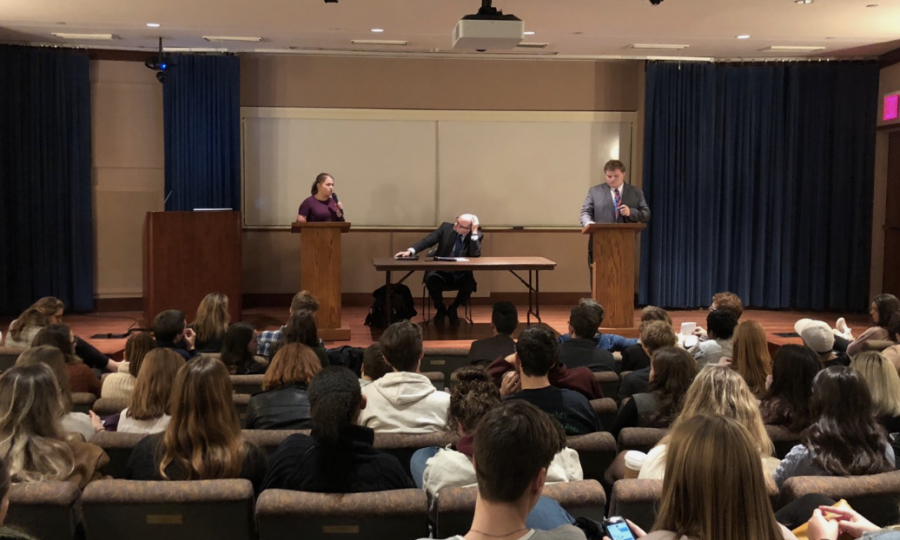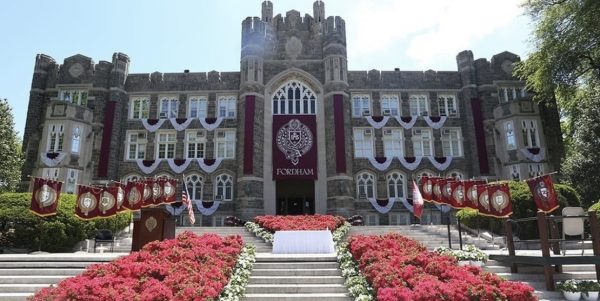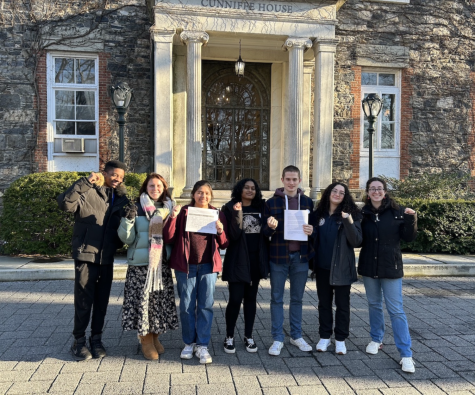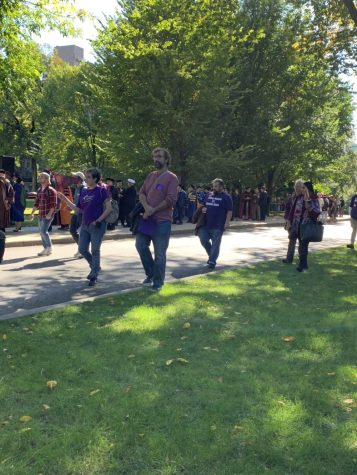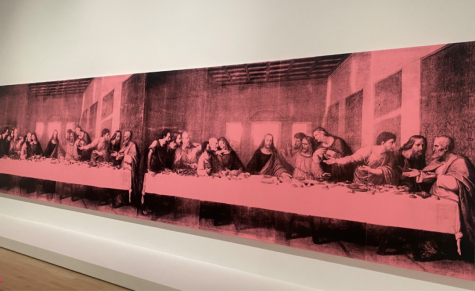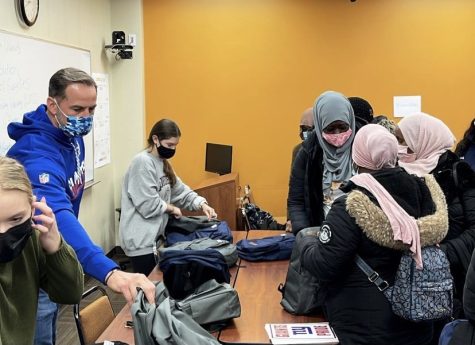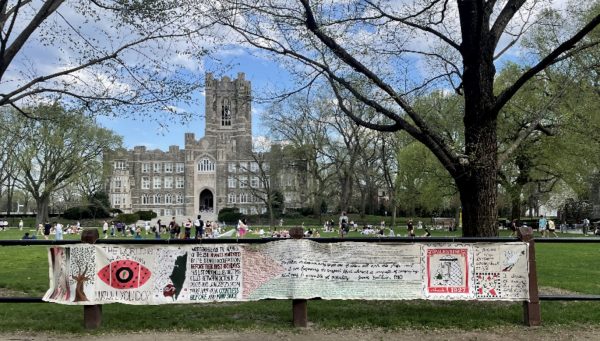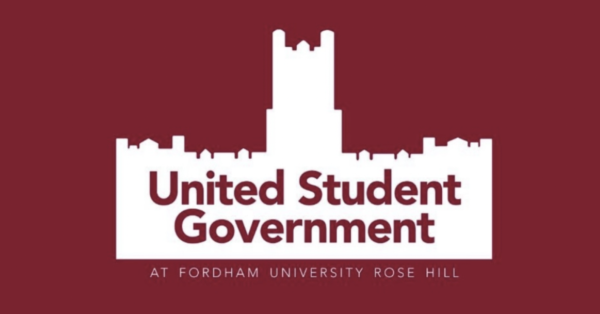Fordham Political Review Holds Annual Debate
By Eliot Schiaparelli
On October 25, The Fordham Political Review held its annual debate, hosting Fordham College Republicans and College Democrats at Fordham University in Flom Auditorium.
When it came to picking the four topics for the debate, the executive boards of the College Democrats and College Republicans met with editors of The Fordham Political Review. They said they chose topics that had been under-represented in the news so debaters could come up with their own ideas and arguments.
The debate opened with the question of whether the United States should continue to support countries in NATO who fall short of their defense spending. Democrat Sean Franklin, FCRH ’21, and Republican Tim Kyle, FCRH ’21, squared off on the issue.
Kyle argued that Europe is not a poor continent and therefore needs to step up and play an equal role so that the U.S. can spend less.
“It is imperative that our European allies in NATO maintain operational readiness and the ability to defend themselves and contribute meaningfully to joint NATO missions. The fact of the matter is this: European military and fiscal contribution to NATO is far, far, far below target,” Kyle said. “The United States can’t tell Europe what to spend on their militaries, but neither can we be responsible for the consequence of their failure to spend adequately.”
To do this, Kyle suggested that the U.S. move its military bases to countries that meet funding goals, thereby providing an incentive to pay up.
Franklin argued that NATO is too important to U.S. interests to abandon it financially.
“It stabilizes the European continent under an order that is favorable to the United States as a powerful force that can promote U.S. interests abroad. Abandoning it would be folly,” he said. “We’re stronger with NATO than we would be without it. NATO allows the U.S. to punch above its weight globally with more access to military resources.”
The second question was about hate speech, specifically whether social media platforms have a responsibility to stop hate speech or controversial speech. The question emerged from the news that several social media platforms recently banned Alex Jones, host of the far right web show “InfoWars,” from their sites. Second to bat was Republican Ryan Slattery, FCRH ’20, and Democrat Jack Pettus, FCRH ’21.
The debaters went deep into federal law, including lots of technical descriptions of Section 230 of the Communications Decency Act. Their conclusions were less technical, however, and centered around Jones.
“Under the current laws, they can censor Alex Jones,” said Slattery. “I don’t blame them. I find Alex Jones to be very toxic.”
Slattery said he believed the current laws should be rewritten.
The third topic saw Democrat Katarina Martucci, FCRH ’19, and Republican Greg Bianchi, FCRH ’22, debate on incarcerated voting. Members of ASILI, the black student alliance at Fordham, engaged the debaters with questions on the issue.
“They have chosen to break the laws and have therefore shown that they do not have the best interest of the nation in their hearts, actions and minds.” Bianchi said. “Voting is surely a right of all American citizens, but, just like all other rights bestowed upon our citizens, the United States individual can revoke his or her rights at any time.”
Martucci talked about a broken system that forced people into crime, while Bianchi argued it was a choice. Martucci said the system could only be fixed if those who were a part of it could give voice to their community’s plight by voting.
“People who are incarcerated are not removed from society. They still live in a society; they’re still affected by policies that are made, such as policies about prison labor, about solitary confinement, about not being evacuated when a hurricane is coming.” Martucci argued, “Being able to vote is still being able to have a voice. They’re still citizens.”
The final question was about whether members of the Supreme Court should face term limits. Sam Hardy, FCRH ’21, spoke for the Democrats, while Chris Stratakis, FCRH ’22, spoke for the Republicans.
Stratakis said he believed experience on the Court makes a justice better at their job. He used the liberal favorite Ruth Bader Ginsburg as an example of a long-serving justice who has gotten better with age.
Hardy hoped term limits could make the selection process less partisan. She said regularity could keep the court independent from politics.
College Republicans President Mike Myllek, FCRH ’19, said they have recently graduated many of their core members, leaving the organization with a very young club. This year, he said they purposely picked young debaters.
“I think overall, considering it is their first semester at Fordham, and probably their first debate in this kind of atmosphere and crowd, they did very well with stage presence,” said Myllek. “So definitely a lot to work through and learn from, but I think the ceiling is very high.”
He also said the club would work with its young debaters so they could improve for next time.
“I think it was great,” College Democrats President Sophia MacMaster, FCRH ’19, said. “I think both sides did great. It’s very impressive to me that anyone can go up there and debate like that.”
Spectators of the debate said they were happy with how it went.
“I’m glad the debate was presented the way it was, because when discussing politics it should be more of a conversation,” said Jeffrey Pelayo, FCRH ’21. “The debate was a good reminder that everyone is entitled to their own opinion – and political discussion is very important.”

